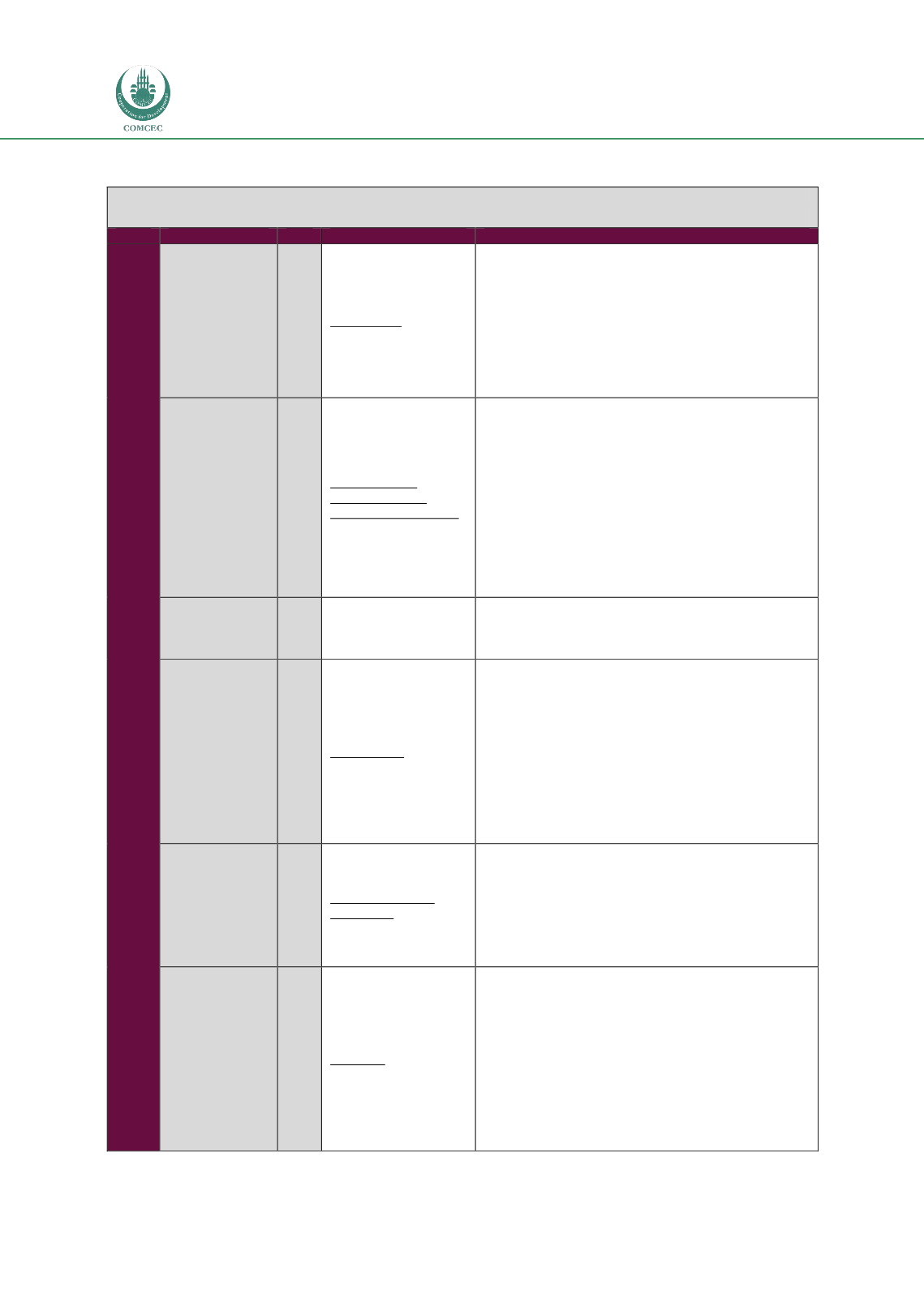

Improving Institutional Capacity:
Strengthening Farmer Organizations in the OIC Member Countries
96
3. Has the Government announced any recent policy initiatives explicitly designed to
encourage farmer organizations?
Group
Country
Y/N
Source
Comments
African Countries
Benin
ElvirevignonYes. In 2011, the Government passed a new law organizing
the governance of FOs. This law made the creation and day-
to-day administration of FOs simpler and more supple. For
example, farmers are no longer required to sign an
agreement with the Ministry of Agriculture, Livestock, and
Fisheries to create a cooperative. In addition, cooperatives
now can be registered on a local level and can be granted
permission to operate by the city council or the local
prefecture instead of the central Ministry of Agriculture,
Livestock, and Fisheries.
Burkina Faso
Fondation pour l’Agriculture et la Ruralité dans le MondeYes, mostly between 2000 and 2003, the Government
announced several policies focusing on decentralizing
services to farmers and increasing the participation of
farmers in decision-making. These policies include
launching the "Projet National de Developpement des
Services Agricoles" which aims to engage FOs, NGO's, and
the private sector in the design and provision of
agricultural extension services. Launching the "Plan
d'actions pour l'emergence des OPA" with the aim of
improving the governance of FOs. And adopting the
Strategy of Rural Development (SDR) in 2003 to organize
and coordinate all public policies and programs affecting
farmers in rural areas.
Cameroon
La Voix du Paysan
Yes, including tax exemptions for FOs and cooperatives, as
well as the launch of the World Bank-funded "Agricultural
Competitiveness Project" to promote the re-emergence of
agriculture as a key sector in Cameroon.
Chad
Droit AfriqueYes. According to the 2010 Government budget of Chad,
agricultural cooperatives are exempted for environmental
protection taxes along with educational institutions and
other production cooperatives. This exemption mainly aims
to incentivize the creation of organizations (like FOs) that
promote efficient and conscious environmental practices.
The government also launched the "Projet d'Entreprenariat
Cooperatif" (PEC) in 2008. PEC aims to facilitate access to
training and funding for FOs and other cooperative
organizations. In terms of funding, PEC provided access to
micro-finance services for farmers and rural producers with
a particular focus on women and youth.
Cote d'Ivoire
Ivorian Ministry of AgricultureYes. The Ministry of Agriculture conducted a study (the year
is not specified) which investigated the economic efficiency
of FOs in Ivory Coast. This study found that only 9% of FOs
were run efficiently. The study also identified other
challenges facing FOs such as the lack of training and
accountability. The Ministry of Agriculture pledged to
provide extension services for members of FOs to guarantee
sustainability, efficiency, and accountability.
Gabon
GabonecoYes. In April 2014, the Gabonese government and FAO
launched a program that aims to strengthen the
entrepreneurial and commercial capabilities of FOs and
agricultural cooperatives. The program will cost $308,000
for the period between 2014-2017. In April 2012, the
Gabonese Government and FAO organized a day of
workshops and discussion panels with FOs and other
organizers of rural producers. The discussions addressed
gender issues as well as issues regarding the training of
farmers. The Gabonese Government also launched the
OLAM Project, which aims to make Gabon the largest
producer of palm oil in Africa.

















